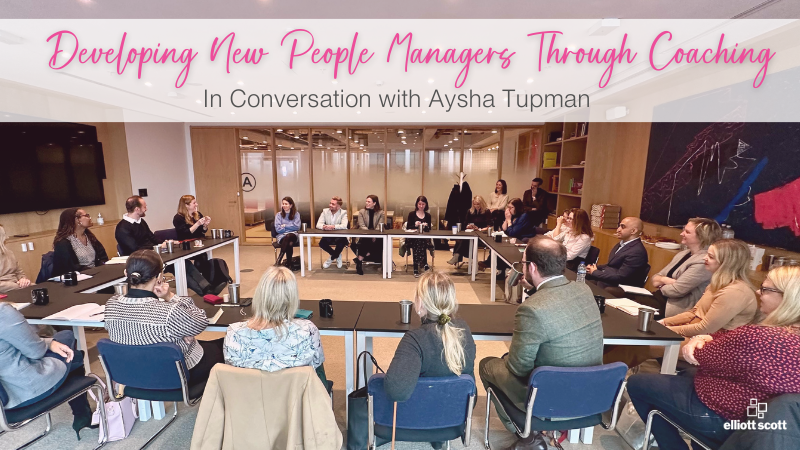Drop off your CV
We serve the global HR community through our offices located in Delhi, Hong Kong, London, New York, São Paulo and Singapore and have placed HR leaders in over 30 countries.
On 14th March, Associate Directors for the UK team; Peter Fahy, Hannah Russel...

On 14th March, Associate Directors for the UK team; Peter Fahy, Hannah Russell and Tom Dover hosted a roundtable event exploring coaching within organisations and the importance of fostering a collaborative culture for improved employee experience.
The roundtable welcomed Director of An Equal Breath, Aysha Tupman to discuss leadership development, coaching as a tool for managers, external vs internal coaching, remedial coaching and much more.
Key Takeaways From the Event:
The Benefits of Coaching Within an Organisation:
The discussion commenced with differing perspectives on coaching. One of the attendees noted that coaching can be frustrating for employees if not used effectively or in the wrong moment, i.e with a lack of direction or support thus rendering them skeptical of self-reflection or creative problem-solving. In light of this, the importance of a supportive organisational culture and effective situational leadership was highlighted to allow people to learn and grow independently.
External Coaching vs Internal Coaching:
The discussion then moved onto the difference between ‘true’ coaching and adopting a coaching mindset. There is benefit in managers using coaching techniques to enable their team to reflect and come up with their own ideas but it was debated if internal coaching was congruent with the requirement for trust, confidentiality and other coaching federation ethics to be achieved. This was supported by the idea of using an external coach who is likely to be more effective by utilising a neutral and distanced approach to coaching in comparison to an existing manager who already has a more biased outlook on their employees’ struggles and contextual information relating to their team and the organisation. The participants were in agreement that in order for an internal manager to be successful at coaching, they must be professionally trained and should coach employees in a different part of the organisation to their own team.
Coaching as a Remedial Solution:
When approaching the topic of coaching, managers should be very clear on what the expectations are. As pointed out by Aysha in this discussion, coaching can often be misunderstood and offered as a remedial solution, much like a wellbeing tool when this may not always be its desired purpose. In the case that coaching becomes more personal and unveils a risk to psychological safety, confidentiality may need to be breached and therefore the lines of what a manager can and can’t do become blurred. In light of this, the importance of being explicit about what you wish to gain from a session was encouraged.
Coaching as a Tool, a Mindset:
The roundtable conversation concluded with the way in which managers can employ different tools to suit scenarios; taking a questioning approach to acquire knowledge was encouraged in order to assess what tools the employee may require. Furthermore, the importance of truly listening to allow someone to feel acknowledged and validated was underlined as key to a successful coaching culture as well as the necessity to simply slow down and give space to pause and think properly.
Thank you to Aysha for sharing insights on the impact of coaching within an organisation and the ways in which managers can build a trustworthy and comfortable environment for their employees. This was a thoroughly engaging discussion and participants openly offered their visions and opinions on the ever-prevalent topic.